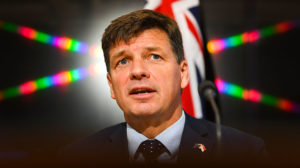Coal demand in China is slowing, which was “excellent news for everybody”, and would continue to face downward pressure in the years to come, International Energy Executive Director Fatih Birol, said today at a media conference at the Paris Climate summit.
China is a major export market for Australian coal and, along with oil and gas, the major source of carbon emissions causing climate change.
Birol said half the world’s coal is used in China but demand there is slowing, despite economic growth of 6-7 per cent, as the government implements wide ranging energy efficiency measures.
“What we are seeing is that Chinese coal demand growth is slowing down and this is excellent news for everybody,” said Birol.
“Of course coal still has a substantial share in China but we have to look at the direction.
“The Chinese government has also shut down several inefficient small coal fired power plants, which is very good news. Many of those moves are motivated mainly because of local pollution issues but it also helps in reducing CO2 emissions.
“I expect Chinese coal (demand) will to continue to face downward pressure in the coming years.”
Boril said long term emissions reduction targets linked to a maximum allowable global temperature increase of 2 degrees, under discussion at the Paris summit, “would be very important for the energy sector to hear”
“If you make your investment in a high carbon infrastructure you may well lose money in the future,” Birol said.
To avoid exceeding a 2 degree temperature target, at least 50 per cent of energy must come from renewable sources, like solar and wind. However, Birol warned that policy variability, as has recently happened in Australia with a reduction in the renewable energy target, was sending the wrong signal to investors.
“For me the biggest challenge for the renewable energies is not the variability of the source but the variability of the policies supporting renewables, because they change all the time and give the wrong signal to investors,” Birol said.
Birol also highlighted the role of renewable energy in meeting the 2C target, saying it would need to supply more than half the world’s energy needs to meet that target, and way more than half if the target was tightened to 1.5C.
In an earlier interview with RenewEconomy, Birol also said wind and solar would play a key role in delivering that renewable energy.







